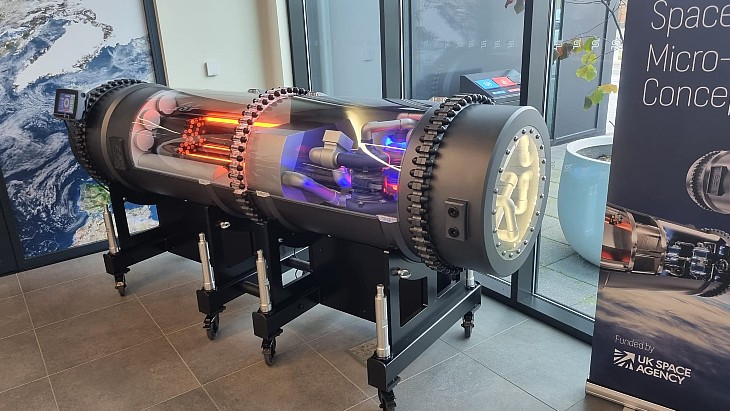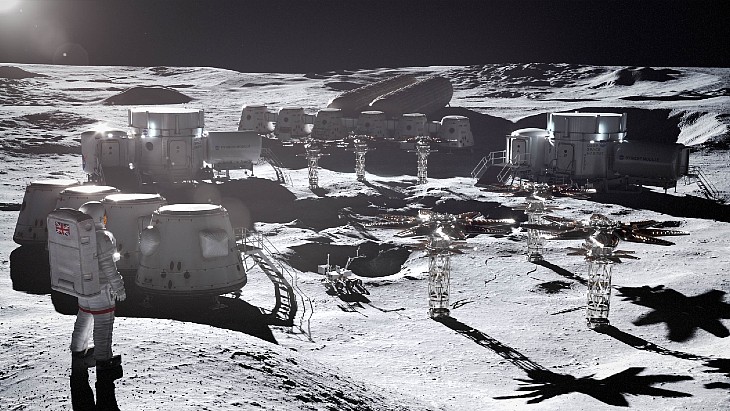The results of a UK Space Agency backed research programme have been unveiled by Rolls-Royce, with the company saying it aims to have a micro-reactor ready to send to the Moon by the early 2030s.

The Space Micro-Reactor concept model (Image: Rolls-Royce)
The Space Micro-Reactor Concept Model was presented at the UK Space Conference in Belfast. It is the result of GBP2.9 million (USD3.7 million) funding from the UK Space Agency into how nuclear power could be used to support a future Moon base for astronauts.
The work focused in particular on the fuel used, the method of heat trasnfer and the technology to convert the heat into electricity. Rolls-Royce said: "All space missions depend on a power source and, as a self-contained and power-dense solution, a micro-reactor can provide power for the habitation and exploration of a planetary surface, or power and propulsion for spacecraft. Continuous power and efficient propulsion can also provide satellites with more flexible movement to protect and defend key orbits."
It would also be able to provide power "regardless of location, available sunlight, and other environmental conditions", and the company says that, as well as its space applications, the aim is to "create a world-leading power and propulsion capability for multiple markets and operator needs" with commercial and defence applications.
For the space project Rolls-Royce worked with Oxford, Bangor and Loughborough universities, the Welding Institute and the Nuclear Advanced Manufacturing Research Centre.
Paul Bate, CEO of the UK Space Agency, said: "Developing space nuclear power offers a unique chance to support innovative technologies and grow our nuclear, science and space engineering skills base. This innovative research by Rolls-Royce could lay the groundwork for powering continuous human presence on the Moon, while enhancing the wider UK space sector, creating jobs and generating further investment."

How a Lunar base might look (Image: Rolls-Royce)
Abi Clayton, director of future programmes for Rolls-Royce, said: "The funding ... has enabled crucial research and development of technologies that bring us closer to making the micro-reactor a reality. Our Space Micro-Reactor Concept Model allows us to demonstrate how this technology will bring immense benefits for both space and Earth."
Rolls-Royce has a small modular reactor (SMR) in development - it is called small in comparison with traditional nuclear power plants. It is a 470 MWe design based on a small pressurised water reactor and designed to provide consistent baseload generation for at least 60 years. Micro-reactors are defined as smaller still - the International Atomic Energy Agency has defined them as "designed to generate electrical power typically up to 10 MWe" and their small size and transportability means they are seen as suitable for many new areas and uses, including space.
Researched and written by World Nuclear News